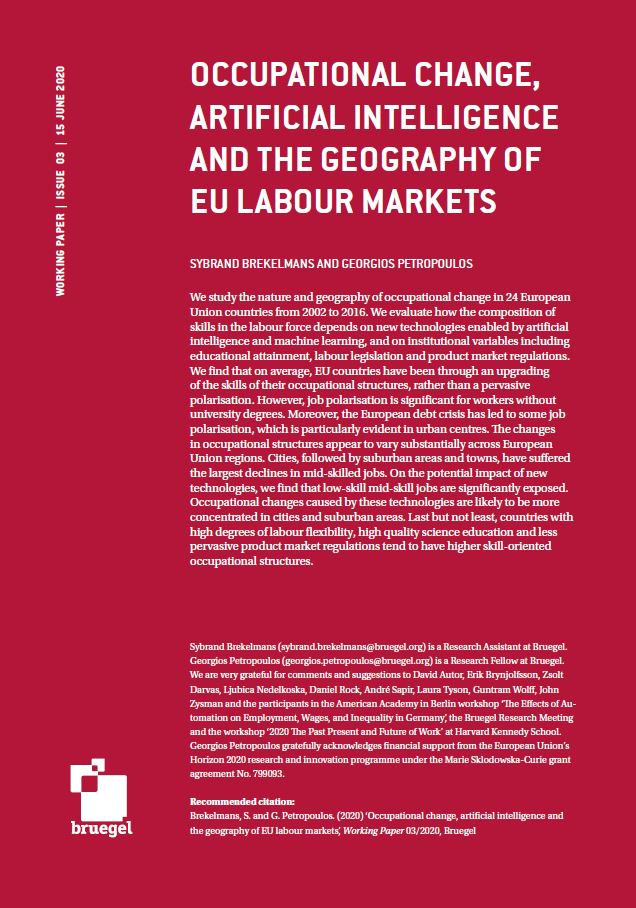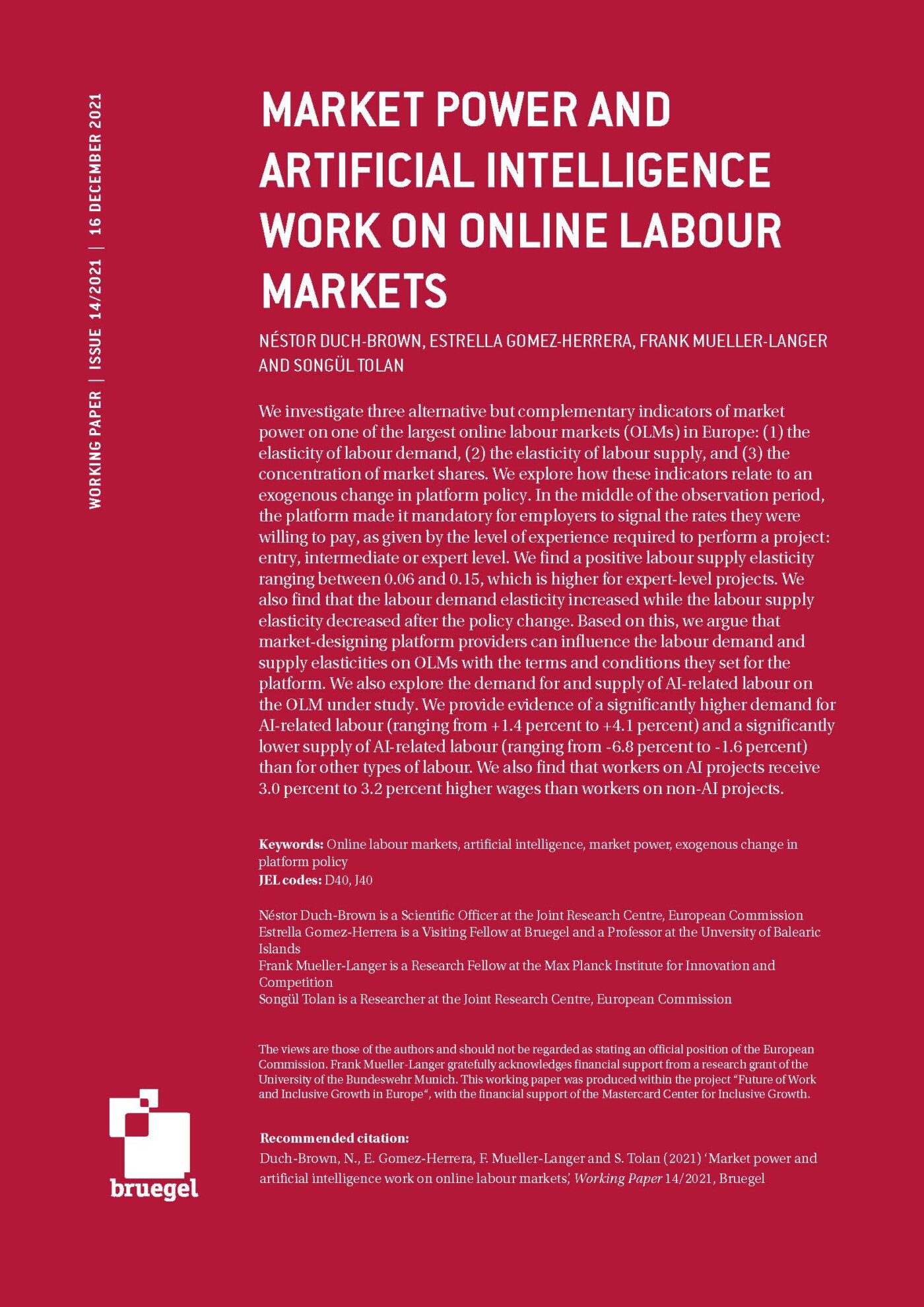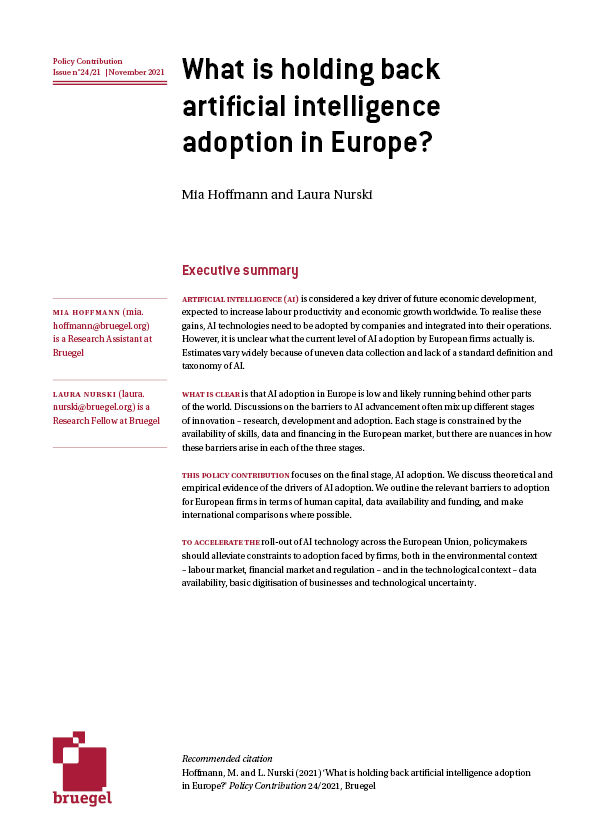Working Paper
Occupational change, artificial intelligence and the geography of EU labour markets
From 2002 up to 2009, the economies of European Union countries went through a skill upgrading, rather than a polarisation between low-skill and high-skill jobs. After 2009, this changed, with declining real wages and a significant increase in the share of workers in low-skill jobs. This assessment evaluates these changes in connection with labour market variables, population densities and the emergence of machine learning and artificial intelligence.
We study the nature and geography of occupational change in 24 European Union countries from 2002 to 2016. We evaluate how the composition of skills in the labour force depends on new technologies enabled by artificial intelligence and machine learning, and on institutional variables including educational attainment, labour legislation and product market regulations.
We find that on average, EU countries have been through an upgrading of the skills of their occupational structures, rather than a pervasive polarisation. However, job polarisation is significant for workers without university degrees. Moreover, the European debt crisis has led to some job polarisation, which is particularly evident in urban centres. The changes in occupational structures appear to vary substantially across European Union regions. Cities, followed by suburban areas and towns, have suffered the largest declines in mid-skilled jobs. On the potential impact of new technologies, we find that low-skill mid-skill jobs are significantly exposed.
Occupational changes caused by these technologies are likely to be more concentrated in cities and suburban areas. Last but not least, countries with high degrees of labour flexibility, high quality science education and less pervasive product market regulations tend to have higher skill-oriented occupational structures.
Recommended citation
Brekelmans, S. and G. Petropoulos. (2020) ‘Occupational change, artificial intelligence and the geography of EU labour markets’, Working Paper 03/2020, Bruegel










